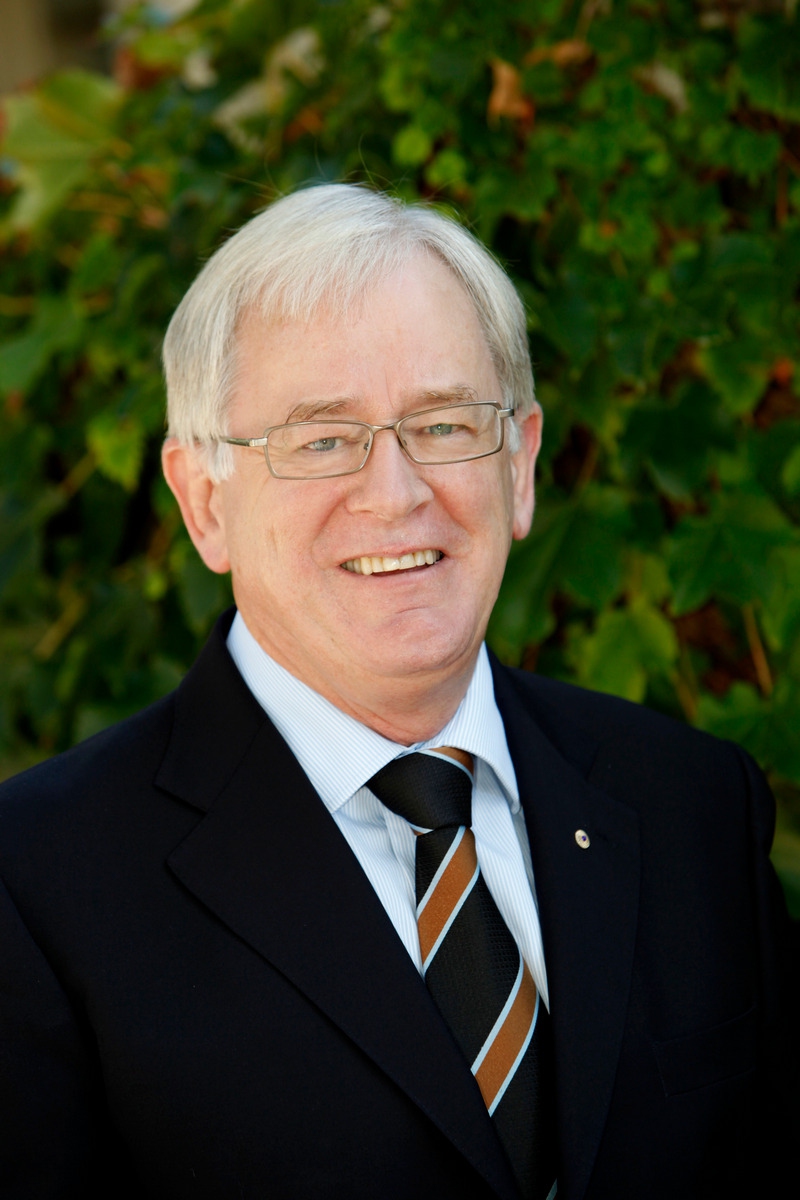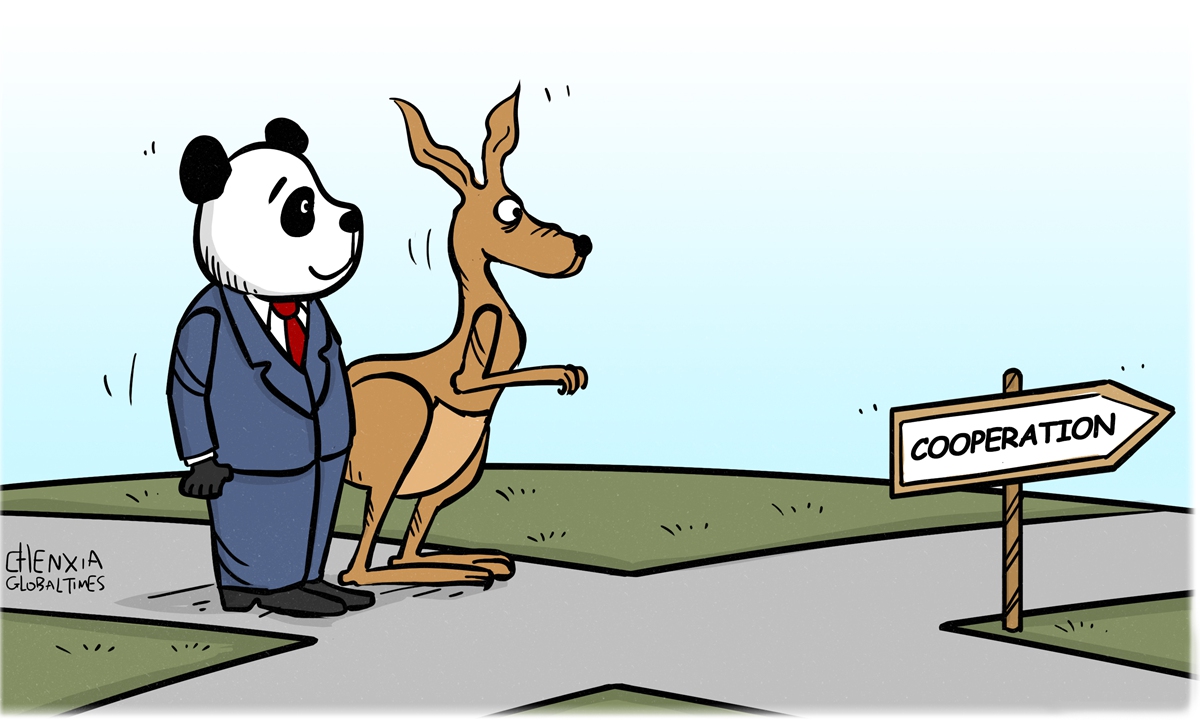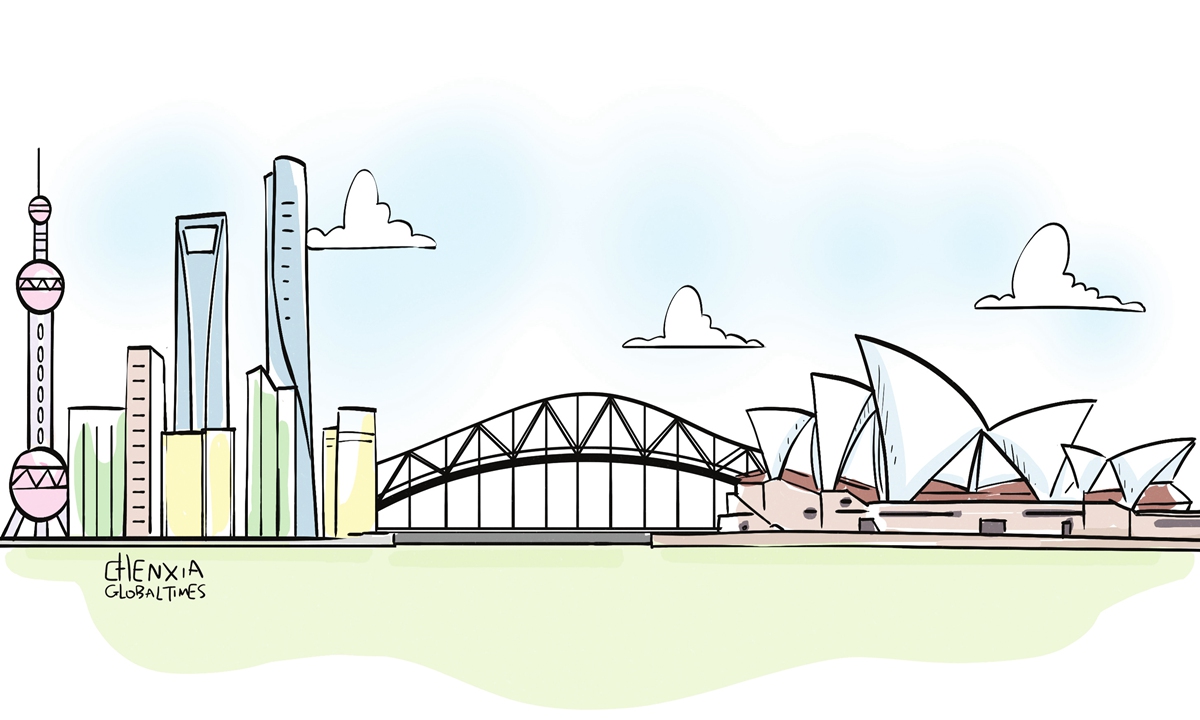Decoupling from China is futile and unnecessary: former Australian trade official

Former Australian Trade Minister Andrew Robb. Photo: The website of Andrew Robb.
Editor's Note:
Australian Prime Minister Anthony Albanese will make his first visit to China in early November since taking office. Before his visit to China, Albanese also met with US President Joe Biden in Washington. What does this US-China shuttle mean for China-Australia relations? What has been in the impact of a rocky few years for China-Australia ties? And what are the most important reasons behind improving relations? Andrew Robb (Robb), Australia's former minister for trade, investment and tourism, shared his views on these questions as well as the influence of US factors on Australia's China policy in an interview with Global Times (GT) reporter Wang Zixuan.
GT: Australian Prime Minister Albanese will visit China from November 4 to 7 and will meet Chinese President Xi Jinping. This is Albanese's first visit to China since taking office and the first visit by an Australian prime minister since 2016. What do you think this visit will mean for China-Australia relations?
Robb: It's a very important occasion. I think it symbolizes that the relationship is returning to a level of stability. That's very important. At a commercial level, it's continued all the way through in a very strong and positive fashion. But obviously, at a political level, at least, we've had significant instability in the relationship, we've had a lot of disagreements and misunderstandings.
So this is a very important occasion when the two leaders are getting together, and I'm sure we don't even need to get lots of outcomes. I don't think that it is the symbolism of the two getting together, but sends a signal to everyone on both sides that our relationship will return to normal.
GT: Australian authorities conducted three separate internal studies in the past eight years, which show that decoupling from China is "impossible." Why is it impossible to decouple from China? What impacts have frozen China-Australia trade ties brought to Australia? What are the most important reasons behind warming relations?
Robb: First, it's almost impossible to decouple. Even though the US and China have all sorts of issues with one another, they are decoupling in some areas, but overwhelmingly what they never tried with one another is to completely decouple. Notwithstanding what's going on. So with a country like Australia, there's so much input into all sorts of activities in both countries which come from the other one, it needs to be maintained.
Second, I think there's absolutely no advantage to this. It shouldn't happen. We're in the same region as China, we are not exactly neighbors, but we're not far off it. We have a very large Chinese Australian diaspora here, a high regard on the people-to-people level, and a strong historical connection. We've got to have good relationships with all of the major partners in the region. And China is, of course, our biggest partner. At that level, it makes absolutely no sense to decouple from China. I think those suggestions are futile and unnecessary.
GT: Before his visit to China, Albanese met with Biden in Washington. Biden emphasized unity and warned Albanese to trust but verify when it comes to China. Why is Albanese making this US-China shuttle visit? The previous Morrison administration's China policy of following the US harmed Australia's interests, how do you see the influences of US factors on Australia's China policy?
Robb: Over the last few years, when there were political problems, we had senior people from the US administration urging then prime minister Morrison to continue with his rhetoric. And his attitude toward China is unnecessary on several things. Then the Americans would go home and continue doing business with the Chinese. So they were encouraging us to adopt the statements that they didn't themselves adopt. It annoyed me quite a lot, because most of the products where we saw sanctions from China were picked up by the Americans. They took up that trade with China whilst at the same time encouraging us to keep stridently criticizing China and its leadership in a political sense, not in a commercial sense.
On the commercial side, we've had a lot of problems related to the political relationship, the commercial relationship was put under pressure, but it has continued in a very positive way. So I think it means that there's a dynamic between us on the commercial side, which can persist notwithstanding. We were in a very sound position to continue with our relationship.
GT: During your tenure as trade minister, you promoted and chaired the signing of the China-Australia Free Trade Agreement. What tangible benefits has this agreement brought to Australia since it came into force in 2015? With recent warming relations, what other potential for cooperation will this agreement and this visit stimulate?
Robb: The agreement took advantage of what was already emerging as a strong commercial relationship. At a commercial level, Chinese business people like doing business with Australia and Australian business people like doing business with China. There's a chemistry there that works, and it does seem that there's trust. Certainly, a lot of Australian business people say to me, every deal might be tough to do. But once you shake on it, a deal is a deal. That's not always the case with many other countries. So it leads to a level of trust, which is very significant to the long-term relationship.
The Free Trade Agreement showed the level of trust and the preparedness of both groups of business people to deal with one another. So it has led to a real burgeoning of trade. Eight years ago, when we signed that agreement, there was a massive increase in two-way trade and even apart from 2022, was effected by COVID, it's kept increasing dramatically notwithstanding the problems that we've had at a political level.
So this has been almost two relationships, one is at a political level, which was not a good one. One is the commercial level, which has just gone from strength to strength. There's still an enormous opportunity to grow business between the two countries, especially on the services side, which is very important now that China needs it like all developed countries and it's heading toward a developed country. I think across that whole myriad of services, there's an enormous opportunity for the two countries on trade.
GT: Australia returned a number of valuable cultural relics to China on October 25. Chinese officials said this is "a clear example of the connection between the peoples of the two countries." In your view, how will the people-to-people ties between China and Australia influence bilateral economic and trade exchanges?
Robb: At the people-to-people level, it will help build trust, and help build all sorts of connections at a cultural level. There's so much we can do. There's so much richness in China at a cultural level, which will benefit in both countries when we share those cultural differences. A lot of arts, music, historical artifacts and the history of China are in particular so rich. It's fascinating for a lot of Australians when they get the opportunity to understand it, hear about it and see it.
So there are so many people-to-people exchanges, especially the more that we have tourism from both sides, it builds understanding, interest, and fascination. It really reinforces the relationship, which is not only good for trade and investment, but also good for our political relationship.


